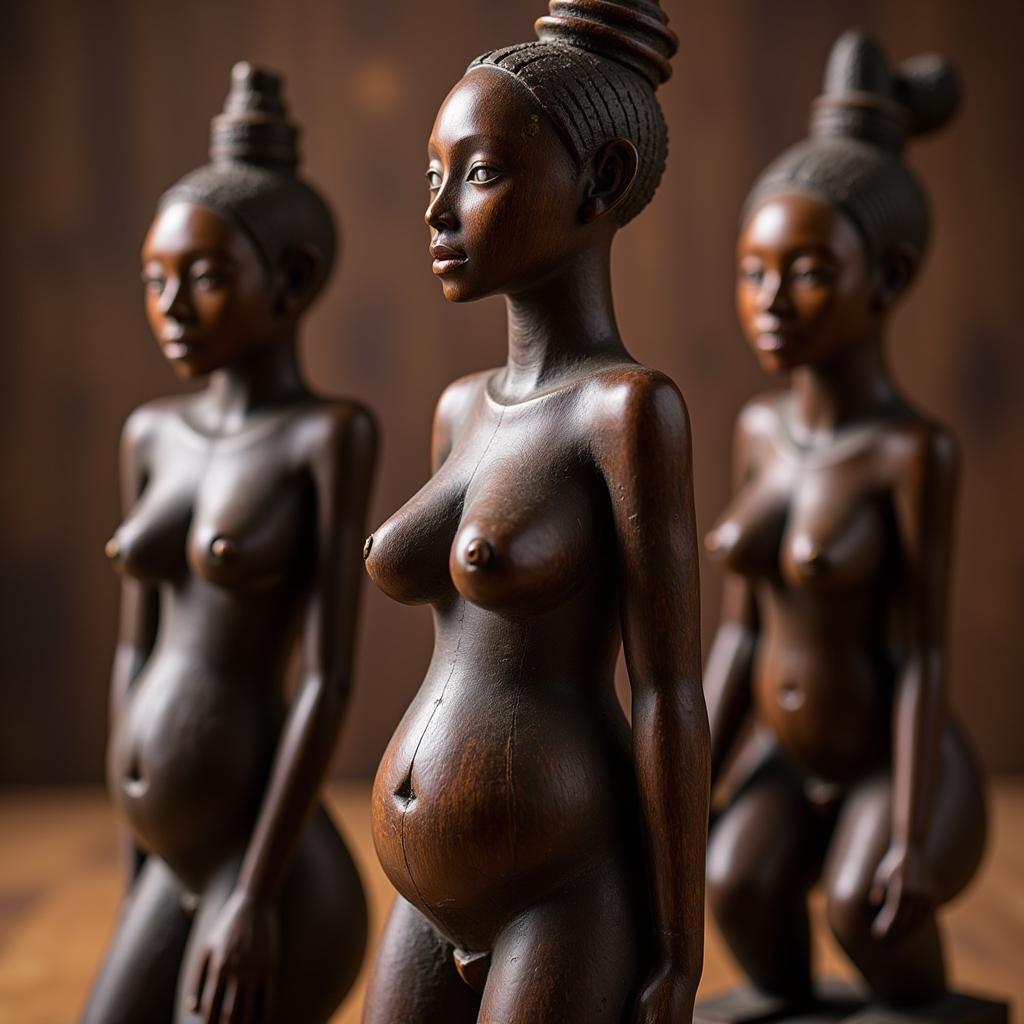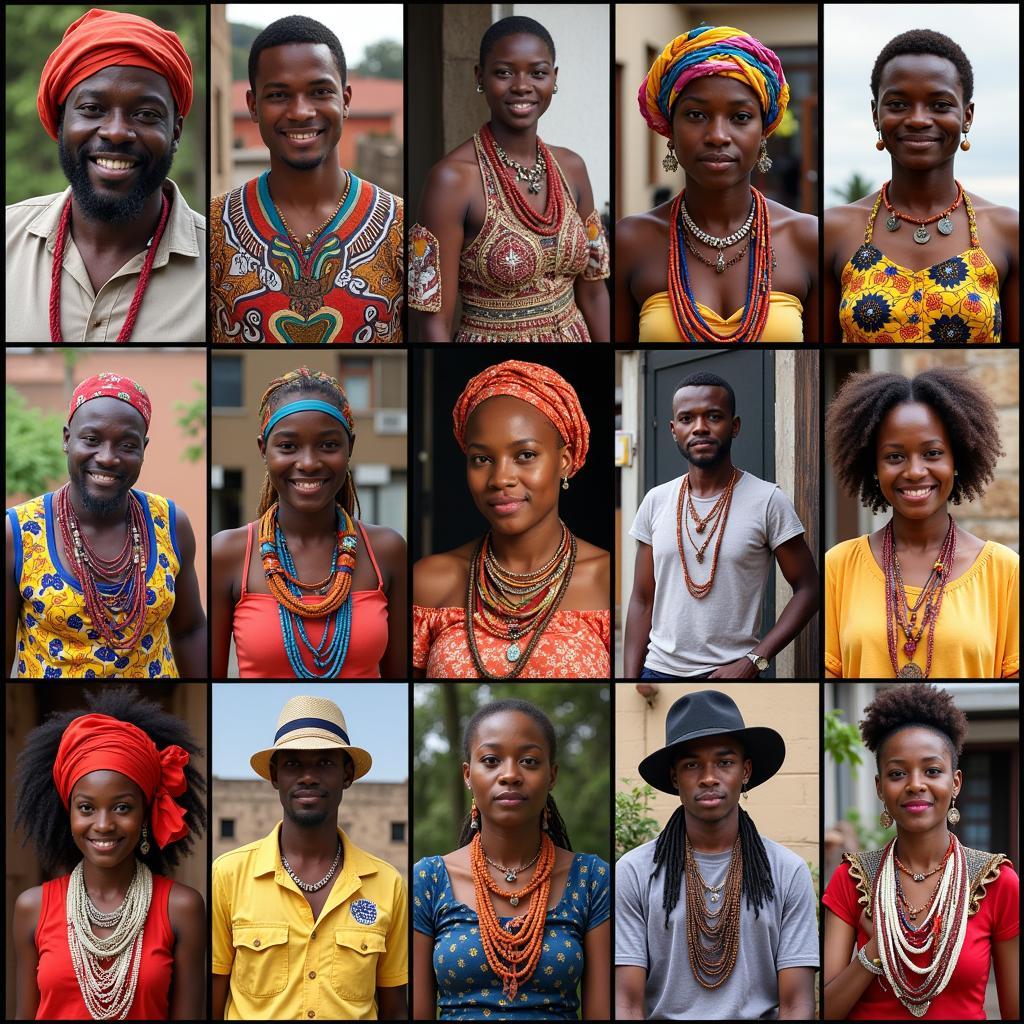Exploring the Rich Tapestry of African Cinema Themes
African Cinema Themes are as diverse and vibrant as the continent itself. From the bustling marketplaces of Lagos to the serene landscapes of the Serengeti, African films offer a unique lens through which to understand the complexities of this vast and multifaceted region. This exploration delves into the recurring motifs, historical narratives, and contemporary issues that shape the landscape of African cinema.
Unveiling the Core of African Cinema Themes
African cinema isn’t a monolithic entity; it represents a mosaic of cultures, languages, and perspectives. While each country and region boasts its own unique cinematic style, certain themes resonate across the continent, reflecting shared experiences and historical realities. These themes often intersect and overlap, creating a rich tapestry of narratives.
One prominent theme is the struggle for independence and the legacy of colonialism. Many films grapple with the lingering effects of colonial rule on African societies, exploring issues of identity, power dynamics, and the search for self-determination. This theme often intertwines with explorations of political corruption and social injustice, highlighting the challenges faced by post-colonial nations.
Another significant thread woven through African cinema is the exploration of cultural traditions and the clash between modernity and tradition. Films often depict the tension between preserving ancestral customs and embracing the forces of globalization, showcasing the complexities of navigating a rapidly changing world.
Family and community ties are also central to many African narratives. These films often portray the strength and resilience of familial bonds in the face of adversity, highlighting the importance of collective support and intergenerational relationships.
After exploring the struggle for independence, let’s consider another aspect. Check out these African American biography movies.
Delving into Post-Colonial Identity in Film
The complexities of post-colonial identity are a recurring motif in African cinema. Films explore the psychological and social impact of colonialism, examining how it shaped individual and collective identities. They often delve into questions of belonging, cultural hybridity, and the search for a sense of self in a post-colonial world. This quest for identity is often depicted through the lens of individual characters navigating the challenges of a changing society.
The Power of Oral Tradition in African Cinema
Oral storytelling is a deeply ingrained tradition in many African cultures, and its influence is evident in the cinematic landscape. Filmmakers often draw upon the rich tapestry of oral narratives, myths, and legends to create compelling stories that resonate with audiences on a deep level. This integration of oral tradition adds a unique dimension to African cinema, connecting the present with the past and preserving cultural heritage.
Many films also explore themes of displacement and migration, reflecting the realities of a continent grappling with conflict, poverty, and environmental challenges. These narratives often depict the journeys of individuals and families seeking a better life, highlighting the resilience and determination of those forced to leave their homes.
African Cinema: A Platform for Social Commentary
African cinema often serves as a powerful platform for social commentary, addressing pressing issues such as poverty, inequality, gender discrimination, and environmental degradation. Filmmakers use their art to raise awareness, challenge societal norms, and spark dialogue about crucial topics affecting their communities. This commitment to social engagement makes African cinema not only a form of entertainment but also a catalyst for change.
For a look at films dealing with a specific demographic, explore this African child movie list.
Capturing the Vibrancy of African Music and Dance
Music and dance are integral to many African cultures, and they play a significant role in shaping the cinematic experience. African films often feature vibrant musical scores, traditional dances, and rhythmic storytelling, creating a sensory feast for the audience. This integration of music and dance adds a layer of emotional depth and cultural richness to the narratives, enhancing the overall impact of the films.
In conclusion, African cinema themes are a reflection of the continent’s diverse cultures, historical experiences, and contemporary realities. From exploring the legacy of colonialism to celebrating the power of oral tradition, African filmmakers offer a unique and compelling perspective on the world. These films not only entertain but also educate, inspire, and challenge us to engage with the complexities of this extraordinary continent. Learn more about African American romance movies 2017 or perhaps explore African American horror movies.
FAQ
- What are some common themes in African cinema? Common themes include post-colonial identity, cultural traditions, family relationships, social injustice, and political corruption.
- How does oral tradition influence African cinema? Oral storytelling techniques and narratives are often integrated into films, connecting the past with the present.
- Why is music and dance important in African film? Music and dance are integral to many African cultures and add a layer of emotional depth and cultural richness to the narratives.
- Does African cinema address social issues? Yes, African cinema often serves as a platform for social commentary, addressing issues such as poverty, inequality, and environmental concerns.
- What is the significance of exploring post-colonial identity in African film? Films explore the psychological and social impact of colonialism and how it shapes individual and collective identities.
- How does African cinema portray family and community? Family and community ties are often depicted as sources of strength and resilience in the face of adversity.
- What role does African cinema play in preserving cultural heritage? By incorporating oral traditions, music, and dance, African cinema helps preserve and celebrate the continent’s rich cultural heritage.
You may also find these questions helpful:
- What are some notable African film festivals?
- Who are some influential African filmmakers?
- Where can I watch African films online?
For further assistance, contact us at: Phone: +255768904061, Email: [email protected] or visit us at: Mbarali DC Mawindi, Kangaga, Tanzania. Our customer service team is available 24/7.


